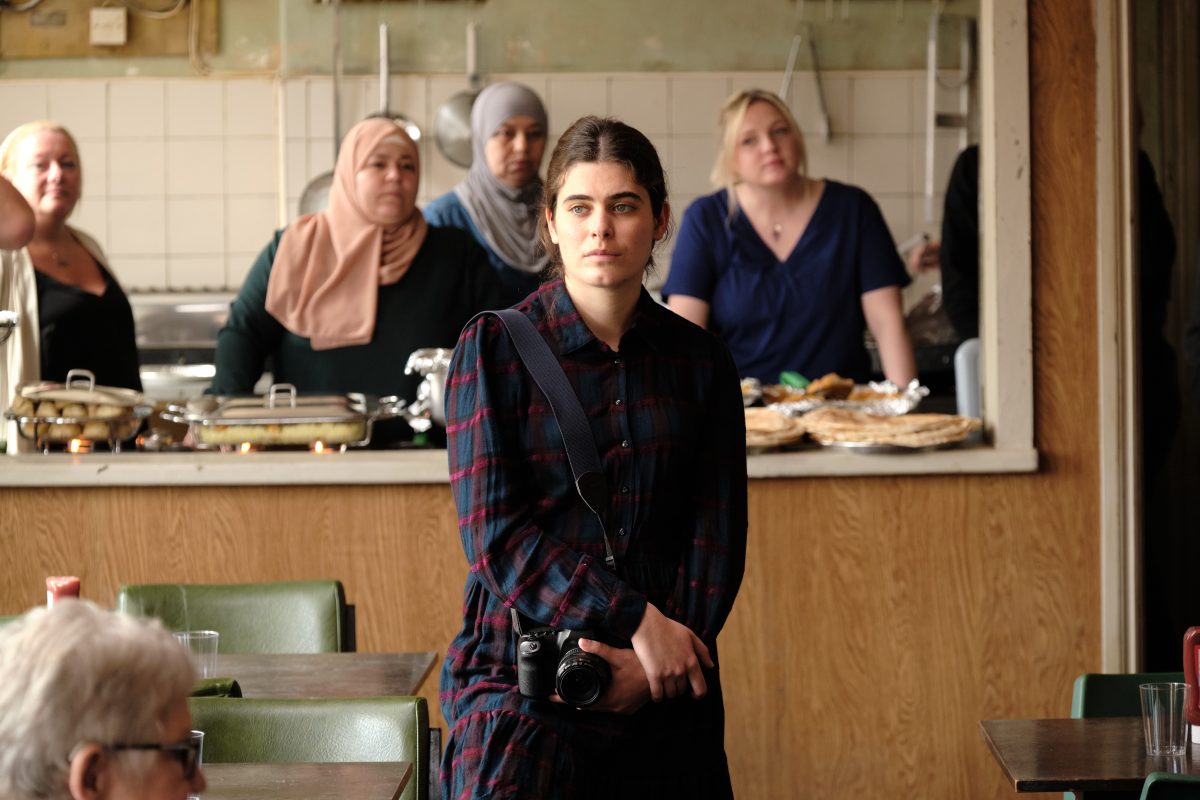
Syrian actor Ebla Mari plays refugee and photographer Yara in The Old Oak. Photo: Supplied.
Acclaimed British film director and screenwriter Ken Loach is a great believer in creating one’s own opportunities, and a stalwart when it comes to backing subjects that impact many people.
He once said cinema can be a tool for societal change, and his works are considered landmarks of social realism. Credence and perspectives can be strong, and debate on these topics is a natural outcome of public discourse.
Loach (Kes; The Wind That Shakes the Barley; I, Daniel Blake), who turned 87 before the film’s release in September, has a socially critical directing style that generates debate over his film treatment of social issues.
The Old Oak is set in 2016 in a village in northeast England where people are leaving the land as the mines are closed. Since houses are cheap and available, it’s the ideal location for Syrian refugees.
Making films in the region has been a powerful experience for the realist filmmaker. The “cliches are true — a warm and generous people, a stunning landscape, and a culture built on hardship, struggle and solidarity”.
Loach’s film Kes (1969) was voted the seventh-greatest British film of the 20th century in a poll by the British Film Institute. Two of his works, The Wind That Shakes the Barley (2006) and I, Daniel Blake (2016) received the Palme d’Or at the Cannes Film Festival, making him one of only nine filmmakers to win the award twice. Loach also holds the record for most films in the main competition at Cannes, with 15.
What will be the future of the last remaining pub, The Old Oak? Many young ones have left and what was once a thriving, proud community struggles to keep old values alive. People feel deserted by the system, there’s burgeoning anger and resentment, racism raises its ugly head and hope is scarce.
Pub landlord T J Ballantyne (Dave Turner, I, Daniel Blake; Sorry We Missed You) struggles to hold onto his pub and keep it as the one remaining public space where people can meet in the town. After 30 years of decline, the community has now fallen on hard times.
As tensions rise when the newcomers are placed there, Ballantyne strikes up a friendship with one of the refugees, photographer Yara, played by Syrian actor Ebla Mari, who makes her screen debut in Loach’s Cannes competition entry.
At first, TJ doesn’t want to be involved: he’s washed up, he’s had enough. However, he develops a camaraderie with two women — Yara, and Laura, played by Claire Rodgerson — who push him to change his ways. He starts by welcoming “our new friends who have left a war zone so we can sit down and meet together and eat together”. ”This is solidarity, not charity. This is about doing something together. It’s not just about putting some food on the table.”
It’s an eye-opening drama about people trapped in this fractured society. Screenwriter and lawyer Paul Laverty (Carla’s Song, Sweet Sixteen, Route Irish) is best known for his screenplays for films directed by Loach. It was Laverty’s idea to tell this story so it could be understood. He knew of the two communities living side by side, both with serious problems, but one with the trauma of escaping a war of unimaginable cruelty, now grieving for those they have lost and worried sick for those left behind. They find themselves strangers in a foreign land. In dark times, there is hope for these groups living together even though there are conflicting responses.
Laverty successfully portrays strength, solidarity, and resistance. A sense of betrayal, sabotage and grievance can drive people to extreme measures, but tragedy brings communities together.
Loach believes cinema about underprivileged people can make a difference. He has created a perceptive film that is also a celebration of the power of acquiescence and neighbourhood.
This is a small-budget film, but it will change people’s opinions, get them thinking, and realise we do have more in common with what unites us rather than divides us.
The Old Oak is screening now.


